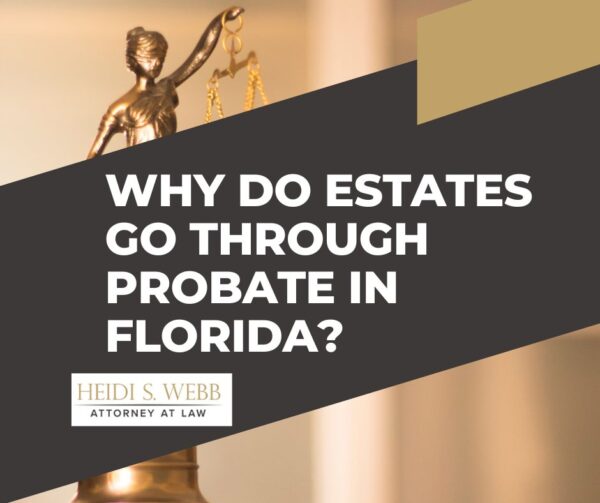Estate planning can be a complex task, but a necessary one. A crucial aspect of this process is understanding probate and deciding whether, based on your assets and estate planning goals, it makes sense to try to avoid Probate. This is especially important for Florida residents, given the state’s specific rules and requirements for probate. So, why do some estate plans need to go through probate in Florida? If there are assets held solely in the decedent’s name without beneficiary designations, the court will need to be involved to:
Authenticate the Will
One of the primary reasons why estates go through probate is to authenticate the last will and testament of the deceased. The probate court examines the will to ensure that it meets all legal requirements and is a valid reflection of the deceased person’s final wishes.
Identify and Inventory the Estate
The probate process helps to identify and inventory the decedent’s assets. This inventory includes both tangible and intangible assets, such as real estate, cars, jewelry, bank accounts, stocks, and more. Accurate identification and valuation of assets are vital to the fair distribution of the estate.
Settle Outstanding Debts
Before beneficiaries can receive their inheritances, the deceased person’s outstanding debts must be settled. This could include mortgages, personal loans, credit card debt, or medical bills. The probate process ensures that creditors are paid off before any distribution to heirs.
Distribute Assets
Finally, the probate process ensures that the remaining assets, after all debts and taxes have been paid, are distributed according to the instructions in the will. If there’s no will, the estate will be distributed according to Florida’s intestacy laws.
While it might seem like a daunting process, probate serves a necessary role in administering the estate of a deceased person. By validating the will, ensuring all debts are paid, and overseeing the proper distribution of assets, probate provides a legal framework that protects the interests of all parties involved.
It’s important to note that not all assets have to go through probate. Assets held jointly, life insurance or financial accounts with a named beneficiary, and assets in a revocable living trust are examples of assets that avoid probate.
It’s always recommended to seek legal advice from a knowledgeable estate planning attorney in Florida who can guide you through this process and help you navigate any potential challenges. This will ensure that your estate is handled according to your wishes and that your loved ones are protected.
Heidi S. Webb, Attorney at Law, serves clients in Daytona Beach, Ormond Beach, Port Orange, and beyond with matters of Estate Planning and Probate. Contact her today to schedule a free consultation. Visit her page on Facebook or see what her clients are saying to learn more about Heidi.




